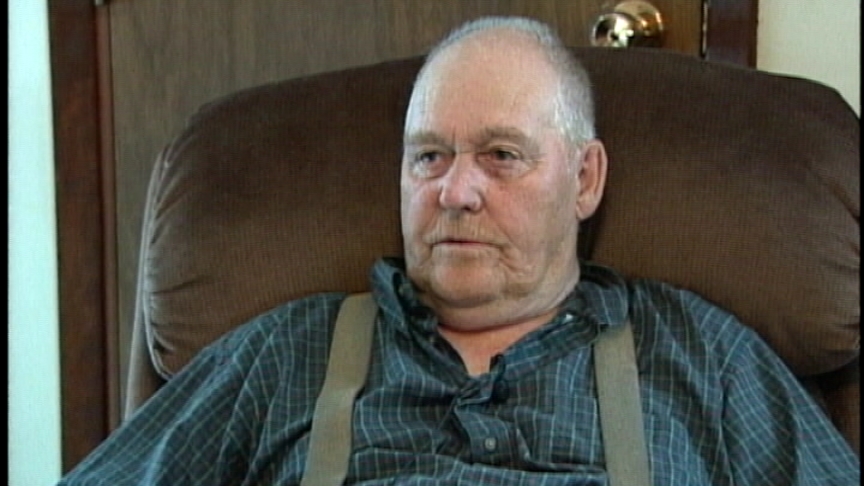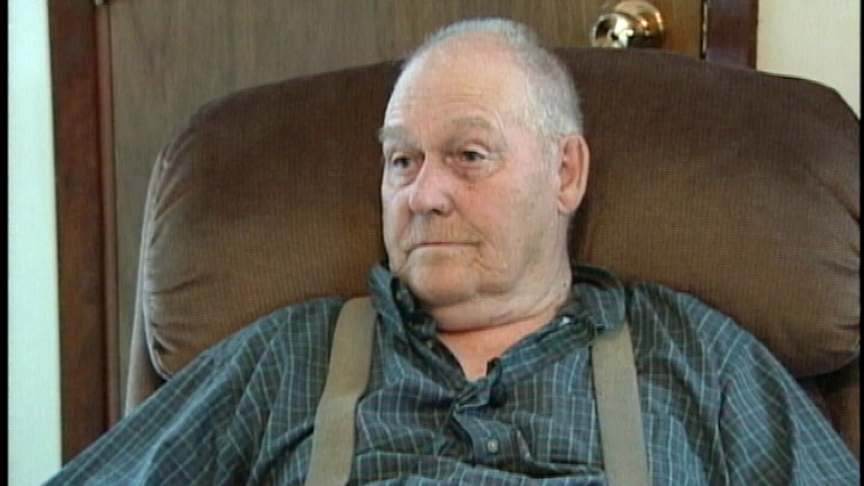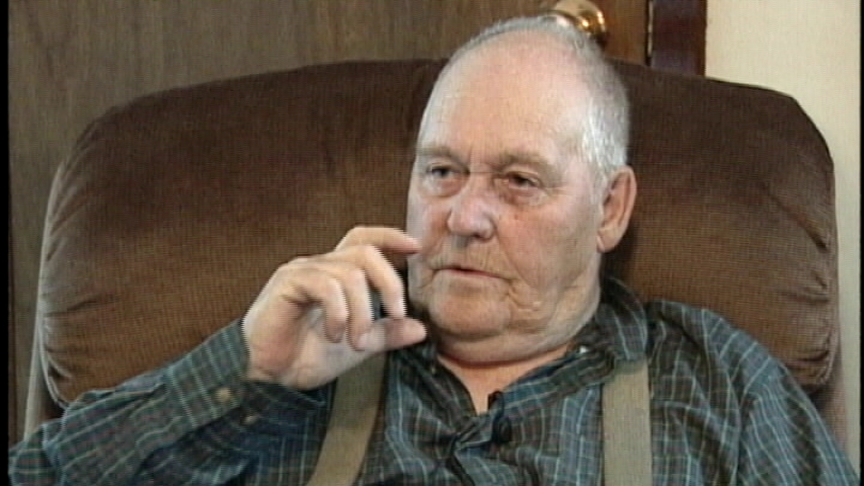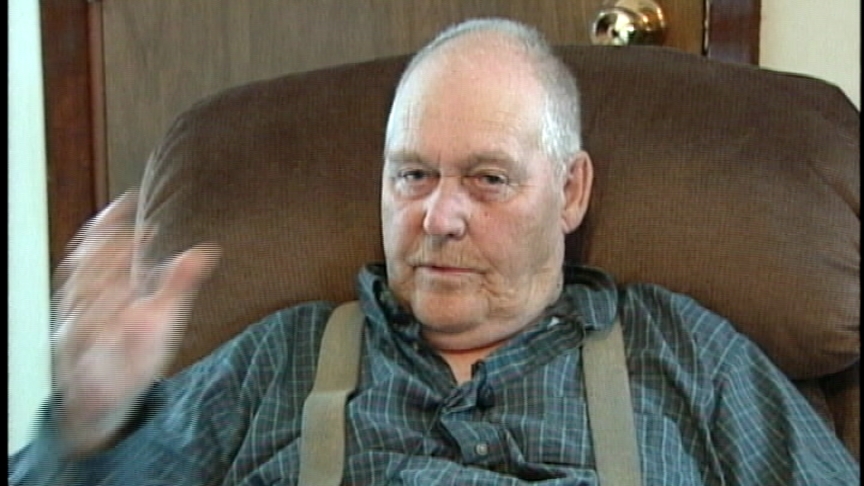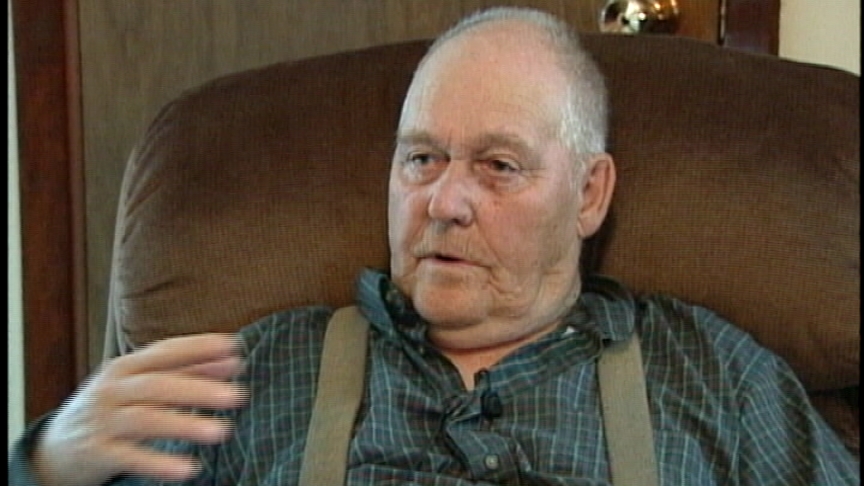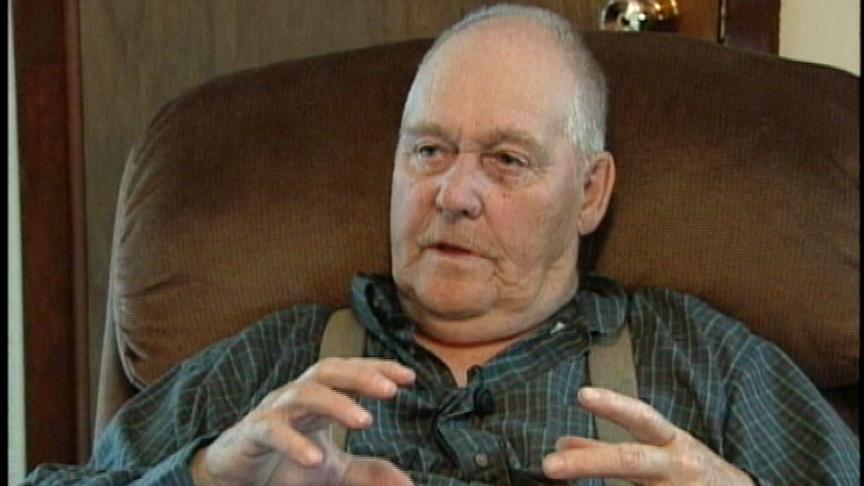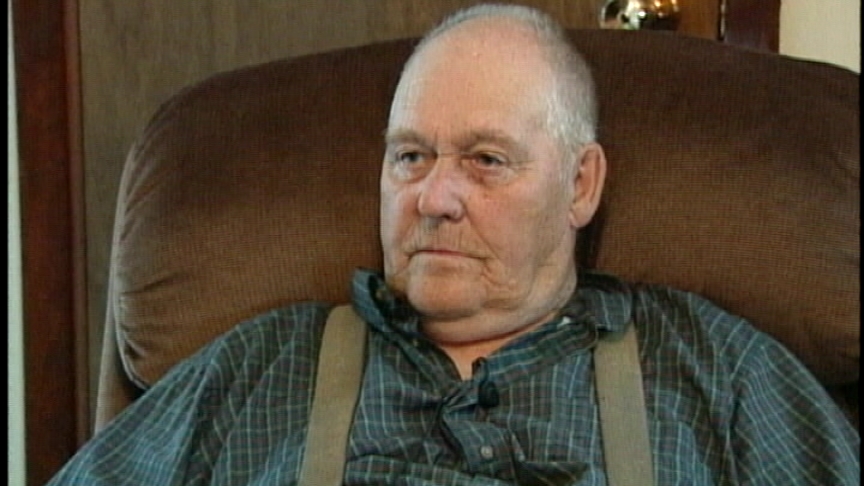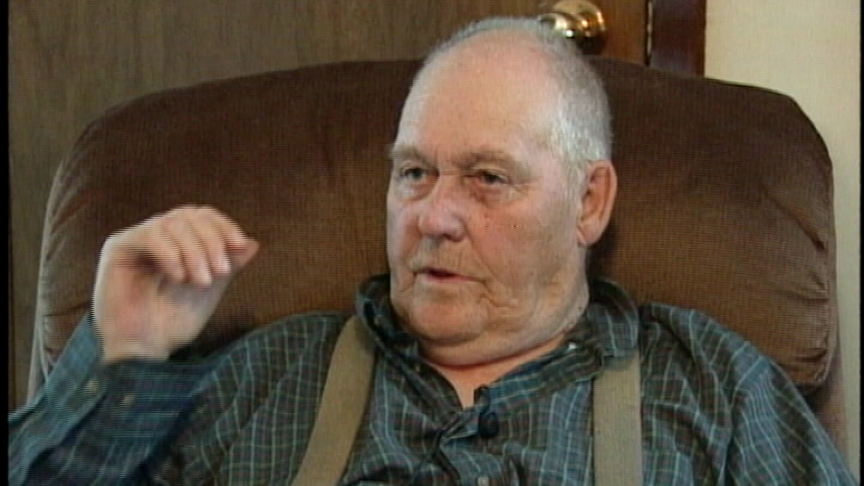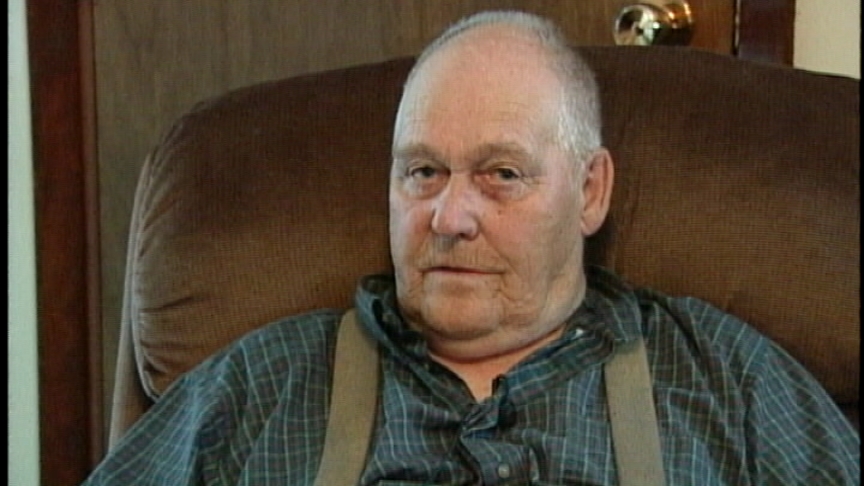Deadly Revenge
Heroes Remember
Deadly Revenge
Transcript
Description
Mr. Lowe describes his responsibilities in the Yokohama shipyard foundry, routine sabotage, and deadly revenge against a cruel guard.
Garfield Lowe
Garfield Lowe was born in Cobalt, Ontario, on May 6, 1919. His mother died shortly after his birth. His father was a mine manager, but moved to Rackham, Manitoba, and setup a blacksmith shop where Garfield learned the trade from his father. Mr. Lowe was on his own at age 15, and over the next six years did a variety of jobs, including trapping skunks for two dollars a pelt, farm labourer and sawmill worker. During this time he was married and had two children. At the age of 21, he enlisted with the Winnipeg Grenadiers. After completing basic training in Sherbrooke, Quebec, he performed internment camp duty in Kingston, Jamaica, where he received extensive machine gun training (no live fire), but no infantry tactics. In Mr. Lowe’s words, the Grenadiers were reinforced with “rejects” before leaving for Hong Kong. Mr. Lowe spent time in four different camps during his incarceration, and witnessed some horrifying events which haunt him to this day.
Meta Data
- Medium:
- Video
- Owner:
- Veterans Affairs Canada
- Duration:
- 3:19
- Person Interviewed:
- Garfield Lowe
- War, Conflict or Mission:
- Second World War
- Location/Theatre:
- Japan
- Battle/Campaign:
- Hong Kong
- Branch:
- Army
- Units/Ship:
- Winnipeg Grenadiers
- Occupation:
- Machine Gunner
Related Videos
- Date modified:



